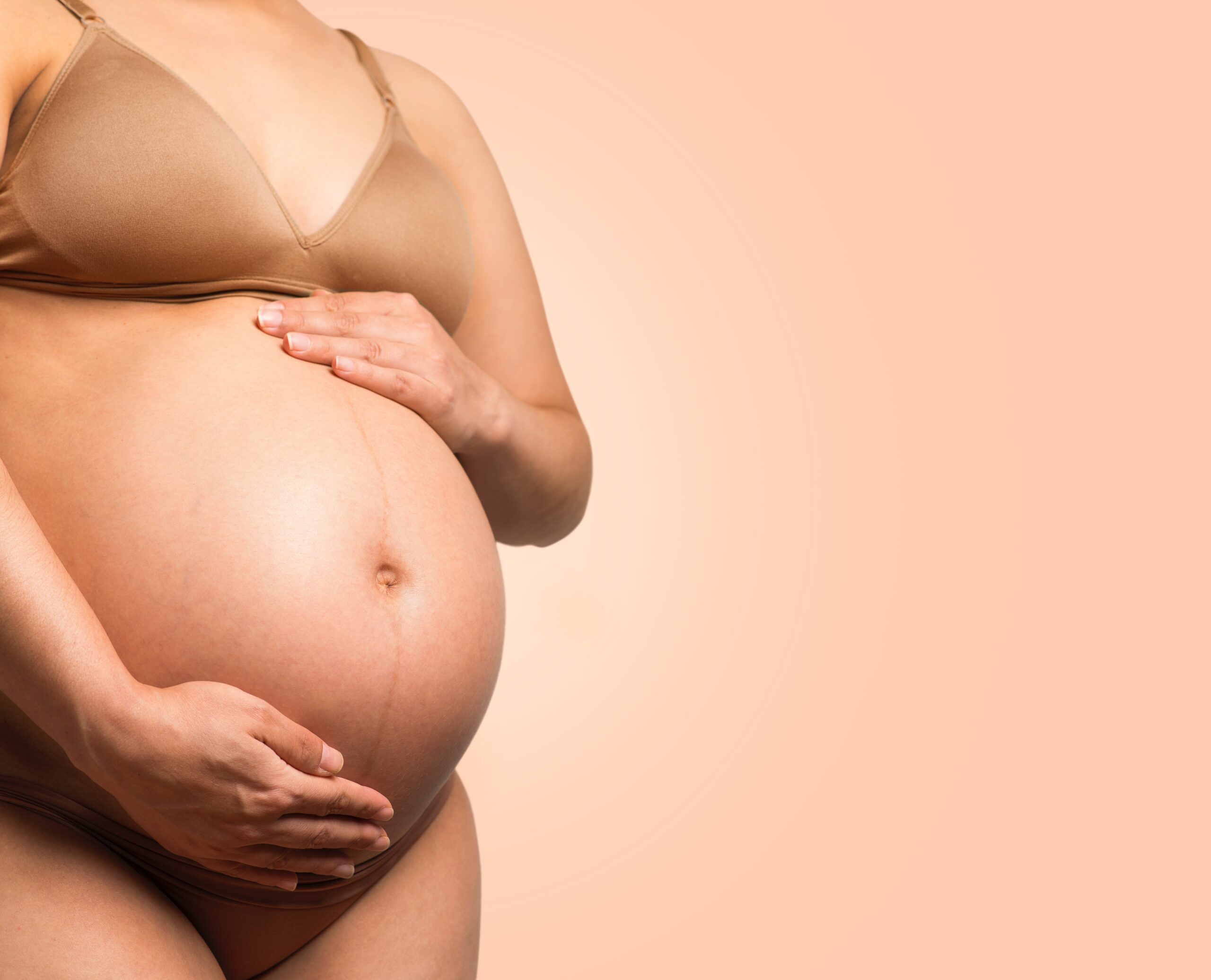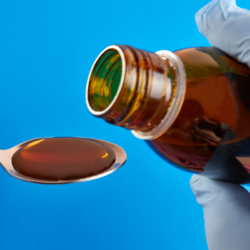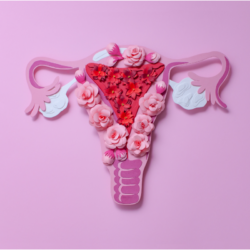Being pregnant is a wonderful and exciting time in a woman’s life. However, the hormonal changes that occur can affect your skin making it more prone to dryness, pigmentation spots and premature ageing. Our guide to the “anti-ageing skincare routine for pregnant women” will give you expert advice on how to keep your skin looking radiant and youthful throughout your pregnancy.
Pregnancy is a period of profound transformation for a woman’s body, and the skin is not spared from these changes. During this period, the skin can undergo various adjustments due to hormonal and physiological fluctuations, ranging from dryness and itching to pigmentation changes such as the pregnancy mask. A tailored skincare routine becomes essential to meet the specific needs of the skin during pregnancy, not only to maintain its radiance and health, but also to prevent long-term problems such as stretch marks. This article aims to guide you in developing an anti-ageing skincare routine, specially designed for pregnant women, to help you navigate through these changes with confidence and serenity.
Anti-ageing skincare routine for pregnant women
During pregnancy, your skin needs special attention. But where do you start? In this section, we’ll discuss the main elements of an anti-ageing skincare routine for pregnant women.
The basics of an anti-ageing skincare routine during pregnancy
Hormonal and physiological changes during pregnancy can have a significant impact on the skin. For example, the pregnancy mask, characterised by brown spots on the face, often appears around the sixth week. In addition, the pregnancy glow, due to increased blood circulation, softens fine lines and makes the complexion pinker. It is also common to see an increase in acne outbreaks due to more active sebaceous glands.
Physical changes such as visible veins, varicose veins and darkening of certain areas of the body are also common. These changes can include darkening of the areola, navel and other areas due to an increase in melanin. In addition, the skin stretching to accommodate the baby’s growth can become drier and itchier, particularly on the tummy, arms and legs.
Before diving into specific products and skin care techniques, it’s important to understand the basics. Here are some golden rules for looking after your skin during pregnancy.
Choosing the right skin care products during pregnancy
Pregnancy is a time when you need to be careful about what you put on your skin. Let’s take a look at the ingredients to look out for and those to avoid.
Hydration is the key to healthy, radiant skin. This principle is even more crucial during pregnancy, which is marked by numerous hormonal and physiological changes that can affect the skin. Adequate hydration helps to maintain the elasticity skin’s elasticity, preventing stretch marks, and promoting its natural radiance. But why is hydration so vital, and how can it be achieved effectively during pregnancy? Let’s find out together.
Understanding skin hydration
The skin, our largest organ, is made up of around 64% water. This water content contributes to the skin’s suppleness, softness and resilience. However, the skin constantly loses water through a process called perspiration. During pregnancy, hormonal changes can increase this water loss, making the skin drier and more susceptible to premature ageing.
Hydration during pregnancy: a major issue
Moisturising and caring for your skin are crucial during pregnancy, not only to maintain its softness and radiance, but also to alleviate specific problems. Good moisturising helps combat skin dryness, which is often exacerbated by hormonal changes, and can reduce unpleasant itching, particularly on the expanding tummy. For pigmentation changes such as the pregnancy mask, using moisturisers containing natural brightening ingredients can help even out skin tone. It’s important to choose suitable, gentle products that contain no ingredients potentially harmful to pregnancy, to deeply nourish the skin and offer extra protection during this sensitive period.
During pregnancy, your body needs more water to support the development of your baby. This extra water helps to form the placenta, which nourishes your baby, and the amnion, which protects it. However, this increased need for water can also lead to skin dehydration, especially if water intake is not increased.
In addition to hormonal changes, the physical expansion of the belly stretches the skin, which can lead to stretch marks. Well-hydrated skin is more elastic and therefore less likely to develop stretch marks.
How to moisturise your skin effectively during pregnancy
Keeping skin well hydrated during pregnancy requires a two-pronged strategy: internal hydration and external hydration.
- Internal hydration: This means drinking enough water. Experts recommend drinking at least 2 litres of water a day during pregnancy. In addition, a diet rich in fruit and vegetables, which naturally contain a lot of water, can also help to hydrate your skin from the inside out.
- External hydration: This involves using moisturisers topical such as lotions, creams and oils. Choose products that are free from parabens, phthalates and other potentially harmful substances. Products containing naturally moisturising ingredients, such as hyaluronic acid, shea butter, aloe vera and vegetable oils, are particularly beneficial.
Application techniques to maximise the effectiveness of anti-ageing products
Applying your skincare products correctly can make a big difference. We’ll show you the best techniques for maximising the effectiveness of your skincare routine.
Pregnancy is a dynamic and exciting time in a woman’s life, marked by a series of profound physical and hormonal changes. These changes can have noticeable effects on your skin, requiring adjustments to your skincare routine. Let’s take a look at how you can adapt your skincare routine to each trimester of pregnancy.
First trimester: Gentle moisturising and cleansing
In the first trimester, hormone levels rise rapidly, which can lead to hot flushes and increased production of sebum. This can make your skin oilier and more prone to breakouts. So it’s important to cleanse your face twice a day with a gentle cleanser to remove excess sebum. At the same time, don’t forget to moisturise your skin to prevent dryness and irritation.
Second trimester: sun protection and radiance
In the second trimester, you may notice the appearance of the “ pregnancymask ” or melasma, which is a darker pigmentation on certain parts of the face. To prevent and minimise melasma, use a broad-spectrum sunscreen of at least SPF 30 every day. In addition, increased blood circulation can give your skin a pregnant glow. Take advantage of this natural glow and continue to moisturise your skin.
Third trimester: preventing stretch marks and relaxing
In the third trimester, the skin on your tummy stretches as your baby grows, which can lead to stretch marks. To help prevent stretch marks, apply a specific cream or specific oil on your tummy, hips, breasts and other areas prone to stretch marks. It’s also the perfect time to pamper yourself with relaxing facials and moisturising masks.
Quarterly guide to skin care during pregnancy
| Quarterly | Skin Problems | Skin Care Tips |
|---|---|---|
| 1st trimester | Oily skin, acne | Gentle cleansing, moisturising |
| 2nd trimester | Melasma, pregnancy glow | Sun protection, moisturising |
| 3rd Quarter | Stretch marks, dry skin | Targeted moisturising, relaxing treatments |
The best anti-ageing skincare products for pregnant women
There are many skincare products designed specifically for pregnant women. These products avoid ingredients potentially harmful to pregnancy and focus on natural, nourishing ingredients. Let’s take a look at some of the best on the market.
1. Moisturising Face Serum with Hyaluronic Acid by La Roche-Posay
This moisturising serum is perfect for keeping your skin soft and hydrated throughout your pregnancy. It contains hyaluronic acid, a powerful moisturiser that can retain up to 1000 times its weight in water.
2. Mustela Anti-Stretch Mark Cream
This cream is specially formulated to prevent the appearance of stretch marks during pregnancy. It’s made from natural ingredients like avocado and shea butter, which nourish and moisturise the skin.
3. Bioderma Fragrance-Free Mineral Sunscreen
This product is a fragrance-free mineral sunscreen, ideal for pregnant women. It offers broad-spectrum protection against UVA and UVB rays and is gentle enough for sensitive skin.
Facts about skin and pregnancy
Pregnancy is a time of incredible transformation for a woman’s body, and her skin is no exception. From hormonal changes to weight fluctuations, the skin undergoes many adjustments throughout the nine months of pregnancy. Let’s take a look at some fascinating and often overlooked facts about skin and pregnancy.
1. Pregnancy radiance is no myth
You’ve probably heard of pregnancy glow. It’s a real phenomenon and is due to an increase in blood volume and increased oil production by the skin. This gives the skin a brighter, rosier appearance.
2. Appearance of the nigra line
The nigra line, or “black line”, is a dark vertical line that often appears on the abdomen during pregnancy. It is caused by an increase in hormones that stimulate the production of melanin, the pigment that gives skin, hair and eyes their colour.
3. Pigmentation changes
In addition to the nigra line, many women experience pigmentation changes in other parts of the body. These can include darkening of the areolae, freckles, moles and scars. Melasma, also known as the “mask of pregnancy“, may also appear as dark spots on the face.
4. Increased skin sensitivity
During pregnancy, the skin can become more sensitive due to hormonal fluctuations. This can make the skin more reactive to certain skincare products, cleaning products and even fabrics.
5. Prevalence of stretch marks
Stretch marks are one of the most common skin changes during pregnancy, affecting up to 90% of pregnant women. They generally appear on the stomach, breasts, hips and thighs as the skin stretches to accommodate the baby’s growth.
6. Possible acne
If you thought you’d left acne behind when you were a teenager, pregnancy may have a surprise in store for you. Increased hormones can stimulate the sebaceous glands, which can lead to skin eruptions.
7. Increased sensitivity to the sun
During pregnancy, your skin may be more sensitive to the sun. This can increase the risk of sunburn and melasma. It is therefore particularly important to protect yourself from the sun during pregnancy.
Lightening ingredients authorised during pregnancy
Pregnancy involves significant hormonal changes that can affect the skin, particularly in terms of pigmentation. It is crucial to use safe skincare products during this period. Among the authorised skin-lightening ingredients, some are particularly effective and safe to use:
- Niacinamide: Also known as vitamin B3, niacinamide works by reducing the transfer of melanosomes to epidermal cells, helping to reduce dark spots and even out skin tone. It also has anti-inflammatory properties and improves the skin barrier.
- Azelaic acid: This acid has antimicrobial and anti-inflammatory action, as well as inhibiting the synthesis of tyrosinase, a key enzyme in melanin production. It is often used to treat hyperpigmentation and is generally considered safe during pregnancy, although studies are limited.
- Vitamin C: A powerful antioxidant, vitamin C inhibits the enzyme tyrosinase, preventing excessive melanin production. It is effective in reducing pigmentation spots and improving skin radiance.
- Glycolic acid: A member of the AHA (alpha hydroxy acid) family, glycolic acid helps to exfoliate the skin and remove dead cells, which can reduce the appearance of pigmentation spots. It also stimulates the production of new collagen, improving skin texture.
Scientific research and precautions
Although these ingredients are generally considered safe during pregnancy, it is important to note that there is insufficient scientific research on their specific use during this period. So, although we understand their mechanism of action, there is still a lack of concrete data on their safety for the foetus. It is therefore recommended that you consult a healthcare professional before incorporating these active ingredients into your skincare routine during pregnancy.





